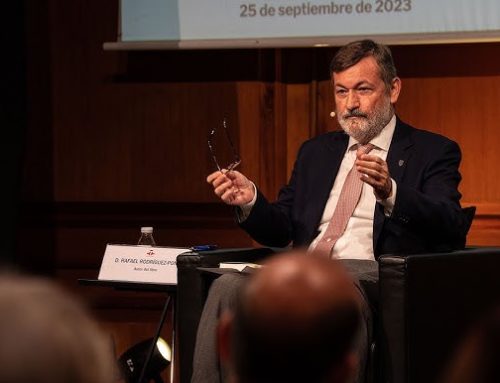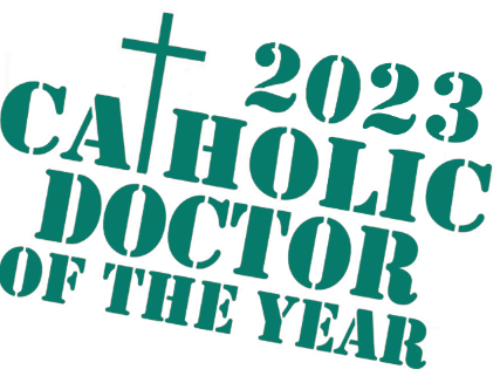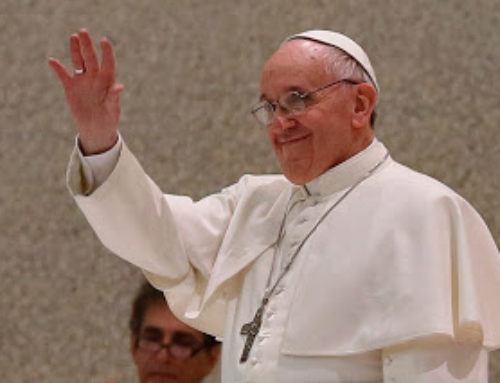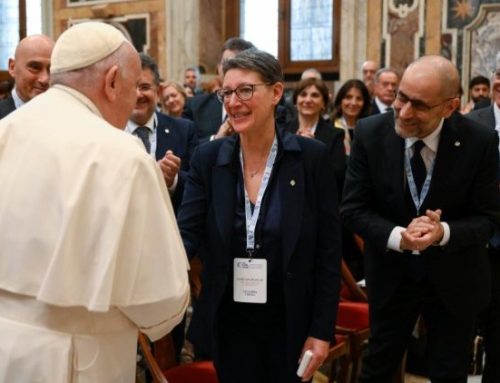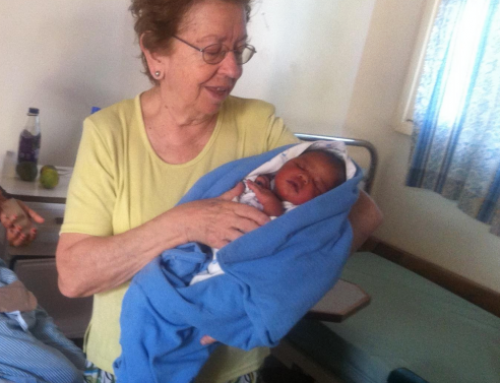13 April 1985
To the members of the International Federation of Multiple Sclerosis Associations
On Saturday morning, 13 April, the Holy Father received the Executive Committee of the International Federation of Multiple Sclerosis Associations along with the members of the affiliated Italian organization. In the course of the audience, the Pope addressed these words to his guests:
1. Distinguished Ladies and Gentlemen of the International Federation of Multiple Sclerosis Associations and of the affiliated Italian organization, welcome to this special audience.
I greet all the members of the Federation coming from the various nations and in particular your president, Mr. Roddiger, as well as the president of the Italian Association, Professor Rita Levi Montalcini, a member of the Pontifical Academy of Sciences, the co-president, Doctor Giorgio Valente, the vice-presidents and all the associates.
Impact on society
2. You devote yourselves to the care, research and cure of a serious illness which makes a great impact also on society.
Often in the several audiences I meet with persons afflicted with this type of suffering: an evil which more often strikes youths in the full flower of their development; a progressive illness which, as it reduces the physical faculties, produces a gradual withdrawal from the circle of employment, from social relations and, at times, even from the family.
The thing which pains you but which, I assume, spurs you on in your research is that the causes of the disease are still for a large part unknown, and therefore the level of knowledge is not sufficiently advanced also on the therapeutic level.
Above all, I wish to say that I would like to encourage, if there be any need for that, your tenacious dedication to the difficult work of research concerning this serious evil. I would like to show you my complete understanding and solidarity for the feeling that sometimes grieves you when, powerless over a disease which you nevertheless feel the duty to alleviate, you approach people who turn to you at the first sign of the illness, weighed down with anguish, looking for hope and confident in your professional skill and sensitivity.
May the Lord support you and bring all your efforts in this field to a successful conclusion.
To inspire sufferers
3. The disease of multiple sclerosis calls to our attention in a singular manner the image of Jesus crucified. The progressive immobility of the limbs leads one to think of the sorrowful image of Jesus nailed to the wood, and calls to mind the words of Saint Paul, “We are in tribulation on every side…bearing always and everywhere in our body the death of Jesus, so that the life of Jesus may also be made manifest” (2 Cor. 4:8-10).
From this consideration, it seems to me, there emerges a more complex but sufficiently clear picture of the mission which together with the physical cures, you carry out for the relief of the person suffering. It is a question of aiding the sick person to understand the value of this likeness and nearness to Jesus the Redeemer. Jesus Christ, who “by carrying out the redemption by means of suffering has likewise elevated human suffering to the level of redemption” (cf Apost. Letter “Salvifici Doloris” n. 19) seems to be saying here with the clearest of voices that every person in his
pain is able to have his share in the work of redemption. If the image of the Crucified is present also in the heart as well as in the body, the wondrous power and grace of consolation will come precisely from Jesus. The sick person will be able to say in faith, like the Apostle, that “just as the sufferings of Christ abound in us, so through Christ does our consolation also abound” (2 Cor 1, 5).
I wish you to be able thus to inspire in the suffering soul of the patient the precious power of hope. Indeed, the cross is not the goal of the Lord’s promises. Precisely the Easter we are celebrating tells us that from the cross, as from the buried grain, glory is born and that from the final cry of Jesus dying on the cross there is heralded the triumph of the new life freed from evil.
With the power of faith in Christ you will be able to aid every sick person to overcome fatalism, and not to abandon himself solely to lamenting his lost faculties. You will be able to show him that so many things are possible by will power. You will be able to inspire courage by directing him towards a conscious and serene acceptance of his circumstances, suggesting to him, precisely in the power of the witness of Jesus, the search for other most noble values for society and for his brothers.
Offer hope to the sick
4. While wishing you every success in your diligent research, I would furthermore like to say to you with sincere friendship not to allow yourselves to be discouraged and not to give up in the face of attempts and experiments which seem to disappoint you, do not allow yourselves to be overcome by difficulty and a lack of understanding: always offer the sick a calming and hopeful dialogue. Very often it is a case of brothers who need a real closeness and sometimes desire spiritual comfort more than anything else. You know how much of a profound impact such situations make on the entire family complex, not rarely upset by the crisis situation and by the exceptional conditions of need, care and assistance in which it is involved. In these cases, nothing that is licit and possible must be left untried, to find, together with the affection of the persons being helped, the solidarity of the family members, the effective participation of the governmental organizations designed to assist in your task, and the ample availability of volunteer service in order that the risks of solitude and isolation, of material and psychological abandonment may be overcome. May your continual attention to those who have turned to you for assistance generate among you a true and exemplary fraternity nourished by Christian charity.
With these wishes, I willingly impart to you a propitious Apostolic Blessing which I wish to extend to all the sick, to your co-workers, your families and to all who are dear to you.
John Paul II

